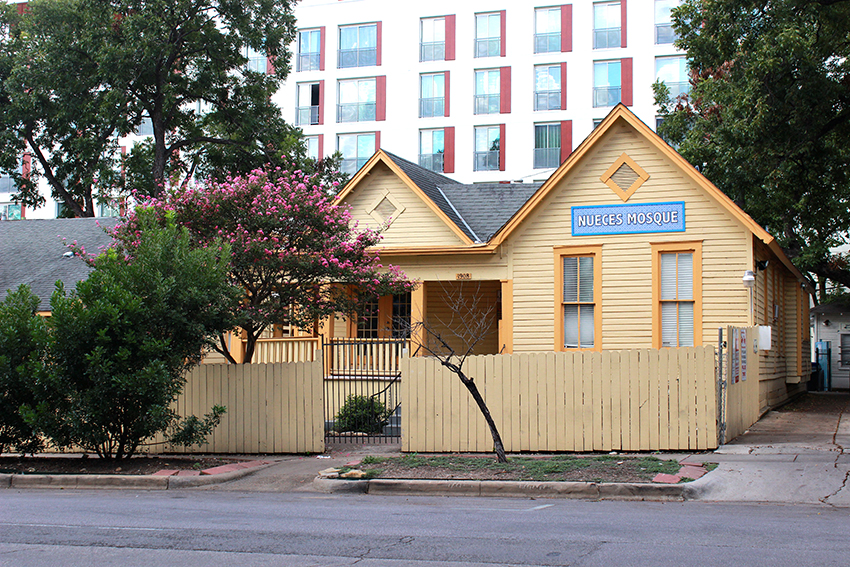Those below the age of 20 are the first to have never experienced a world in which the words “nine-eleven” don’t bring about the feeling of grief and helplessness. However, amid a sea of #neverforget hashtags, people often seem to forget that the population of Muslims living in the west were rendered the most helpless as a result of the 9/11 attacks.
Adil Moosani, senior mechanical engineering student and publicity director for Nueces Mosque, who went to an Islamic primary school that lost a large percentage of its student population the day after 9/11, says that though he was extremely young at the time, even he could tell that the world had changed.
“One of the things I noticed is that it’s really easy for me to assimilate to society,” Moosani said. “I really respect women who wear the hijab is because they’re immediately identified as Muslim.”
Fearing for their safety, many Muslim women began to cease wearing the hijab, going into hiding by conforming to their surroundings and revealing more than they are comfortable with. Both Muslim and non-Muslim men, fitting the west’s stereotype of a “Muslim man,” shaved their beards and stopped wearing cultural articles such as turbans. Any man named “Mohammad,” the most popular male name in the world, came to expect being patted down at airports.
In fact, Moosani and his friends have a running joke that any time they go to the airport, especially if they have a beard or a complexion that suggests South Asian or Arabic heritage, they are likely to be “randomly searched” by security. “You expect that to happen,” Moosani said.
Eid, the Muslim holiday commemorating God’s mercy for Abraham, fell on 9/11 this year. The rise of hate crimes against Muslims caused many to celebrate on Sept. 12 instead.
Moosani attributes misconceptions of Islam to how it’s portrayed in the media by prominent figures such as Sam Harris and Bill Maher.
“You’re constantly being shown that the bad guy is a Muslim,” Moosani said. “The other terrorist attacks aren’t publicized because it doesn’t fit the political agenda.”
15 years later, we still haven’t found a solution to ensuring national security without humiliating hundreds of Muslims every day. 15 years later, the threat of ISIS caused Muslims, who were just beginning to feel comfortable once again, to be pushed back into isolation. 15 years later, the media still publishes anti-Muslim rhetoric, causing almost half of all Americans to believe that Muslims should be banned from immigrating to this country.
15 years later, in a world that claims to be accepting and opportunistic, people still have to be reminded every day that 1.6 billion people cannot be responsible for the actions of a few. With this lack of acceptance and willingness to learn more about the religion, that so many people understand as “violent,” comes the rise of Islamophobic sentiments in the U.S.
Moosani asserts the importance of surrounding yourself with people who challenge your beliefs and entering conversations with an open mind in order to show people how peaceful Muslims can be. He noted that the violent passages of the Qur’an can be found in other religious texts as well. Since the media doesn’t report on moderate Muslims and the work they’re doing to combat Islamophobia, Moosani said, “It’s going to take some time for us to cause change. There’s always going to be more that we can do, but as long as we’re moving forward, that’s good enough for now.”
Mehraz is a Plan II and business sophomore from Austin. Follow her on Twitter @MehrazR.





















